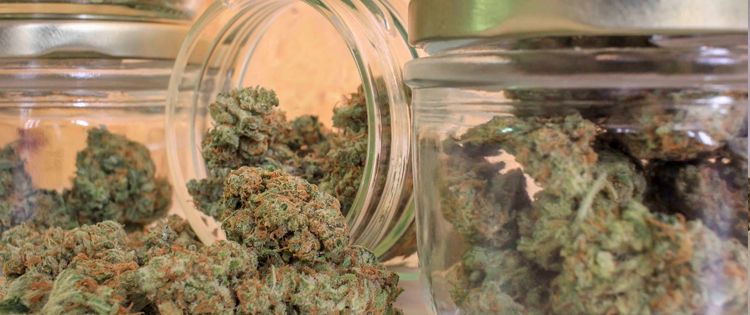While the majority of cannabis advocates and weed enthusiasts believe that marijuana addiction is not applicable, there are still those who see marijuana as harmful and addictive despite the countless medical studies saying otherwise.
Marijuana is a plant that produces a range of effects that is unmatched in its medicinal value. It can provide a blissful release to its users and can aid in the relief of medical symptoms in most illnesses. In some cases, its application can ultimately lead to a cure.
However, like any other substance that is used medically or recreationally, it is prone to abuse. Users of marijuana, who take it regularly, especially recreationally, tend to build up a tolerance. The more a user tolerates a drug the more they consume of the substance to get the desired effect.
Does having tolerance over a substance qualify it to be addictive?
Let us delve in deeper on what really qualifies to be an addictive substance and if marijuana possesses the same qualifications.
What is Marijuana Addiction?

Marijuana advocates say that marijuana is not an addictive substance. This is because the users of marijuana display no addictive symptoms towards the drug like cravings and withdrawals when use is discontinued.
Illegally abused narcotics such as heroin, that are classified the same as marijuana by the US government, can lead to severe withdrawals. These types of drugs are well known to ultimately produce fatal results.
“One of marihuana’s greatest advantages as a medicine is its remarkable safety. It has little effect on major physiological functions. There is no known case of a lethal overdose… Marihuana is also far less addictive and far less subject to abuse than many drugs now used as muscle relaxants, hypnotics, and analgesics. … The ostensible indifference of physicians should no longer be used as a justification for keeping this medicine in the shadows.” – Journal of the American Medical Association, June 21, 1995. Commentary. p. 1874-1875
Those against marijuana says that although it may not be physically addictive to the user, the continued use of the drug may lead to psychological addiction. Users of marijuana may tend to abuse the drug to a point that it can affect their lives in the process. When a user of marijuana cannot function within the day without taking in the drug, that may be a problem.
On official record, marijuana is less addictive than tobacco, alcohol, coffee and other substances that are prone to abuse and that are available in the market today.
What is Psychological Addiction?

Marijuana is associated with psychological dependence. This is when the user of marijuana prefers to use the drug not because they have to, but because they want to. Marijuana users may tend to find comfort in doing normal task throughout the day while being under the influence.
Psychological addiction is built up from the euphoric properties of marijuana and can often be the reason why users enjoy it so much. They use it to improve their daily experience, thus the saying, “everything feels better stoned”.
Psychological addiction to a drug may cause mild depression, insomnia and loss in appetite when drug use is stopped.
What is Marijuana Tolerance?

The use of marijuana over time can build up a tolerance to its user. Tolerance can be obtained when a person’s regular intake for a specific substance, in this case, marijuana can no longer satisfy, making it attractive to increase intake of the drug.
Some might associate marijuana tolerance with the tolerance over alcohol, which is one of the big factors in alcohol addiction. After building up a tolerance to alcohol, it is less likely for the user to stop drinking alcohol since stopping can give out negative consequences such as irritability and severe depression.
Unlike alcohol, marijuana tolerance can always be refreshed or reset to possibly having no tolerance to the drug whatsoever. This is an easy task to do since the discontinued use of marijuana does not put out any physical withdrawals. If the drug is discontinued, given enough time, the user may decrease its tolerance over marijuana.
Cases of “Marijuana Addiction”
Millions of people all over the world use marijuana, some on a daily basis. Although there are no fatal incidents associated with marijuana use, there are cases of people who establish a psychological dependence on the drug. Considering a number of people who use it all over the world, those who are dependent on marijuana are actually rare and marijuana dependence is not prevalent in most of its users.
Most cases of psychological dependence over marijuana are found to be in those people who started using marijuana at an early age. Those who start use around 12-16 years old may find it alter their developing brain. This is because THC, the active component in the marijuana plant, mimics anandamide in the endocannabinoid system. The THC is not a natural substance in the body, the endocannabinoid system may be subject to constant stimulation and in the process may lead to the abnormal growth of cannabinoid receptors. This is nowhere near fatal and is not something that can progress to far more worst illnesses.
So is Marijuana Addictive?
With what we have learned in our research about if marijuana addictive, I think it is safe to say yes, but not to the same degree as narcotics and alcohol. Marijuana addiction is controlled by the users’ tolerance and they are able to wean themselves off the substance without damaging withdrawals.
What measures do you personally prefer to control your marijuana tolerance?
SHARE With Us Below!
- How to Use Waxmaid Honey Pen? - April 9, 2024
- How To Choose The Best Electric Dab Rig For Christmas - December 7, 2023
- Maintenance Matters: Keeping Your Glass Water Bong in Pristine Condition - October 9, 2023


